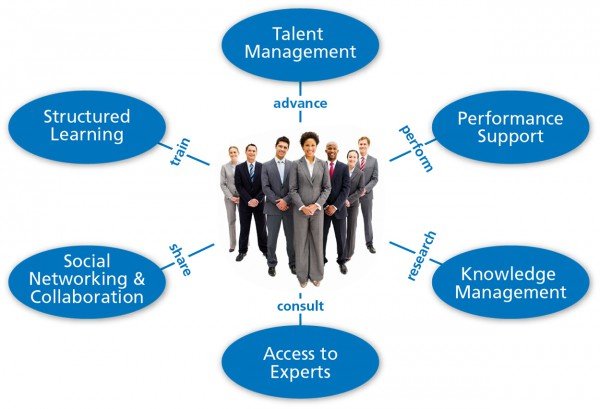In the dynamic landscape of modern business, the strategic accumulation and utilization of knowledge within an organization have become a cornerstone of success. Companies that effectively manage and leverage their collective insight can outpace their competitors and navigate the complexities of the market with greater efficiency. This intellectual resource, garnered from the experiences and expertise of its workforce, is a pivotal factor in driving innovation, maintaining competitive advantage, and sustaining growth. Understanding and harnessing this asset can be transformative, offering businesses a potent tool in their strategic arsenal. Keep reading to uncover the benefits and strategies behind effective organizational knowledge management.
Understanding Organizational Knowledge and Competitive Advantage

Organizational Knowledge refers to the collective skills, experiences, and insights within a company, which evolve with every project and interaction. This dynamic resource is key to achieving strategic objectives and gaining a competitive edge. Companies that effectively utilize this knowledge can make informed decisions, develop innovative products, and stay ahead of market changes.
Beyond just tangible assets like patents and databases, Organizational Knowledge also includes intangible elements like corporate culture and employee expertise. When properly managed, these components shape long-term goals and drive growth, helping companies adapt to industry shifts and maintain resilience.
Harnessing Organizational Knowledge to Foster Innovation
Innovation is the lifeblood of an organization, driven by the pursuit of new ideas and solutions. Organizational knowledge is the foundation of creativity, and when employees share their knowledge and build upon each other’s insights, innovation flourishes. A diverse knowledge within an organization, from executive to shop floor, is a valuable asset for cross-pollination and innovation.
A collaborative culture that encourages knowledge sharing and innovation requires the right infrastructure, including processes and tools for effective collaboration. Successful organizations are at the forefront of their industries, discovering emerging trends, launching novel offerings, and avoiding stagnation.
Organizational Knowledge Sharing: Methods and Best Practices
Sharing knowledge within an organization faces challenges like geographical dispersion, siloed departments, and varying digital fluency. To ensure knowledge propagation, a central knowledge repository with robust indexing and search capabilities is recommended. This democratizes knowledge, allowing every employee to contribute and benefit from the collective intelligence.
Mentorship programs, cross-functional teams, and regular knowledge-sharing meetings also facilitate better dissemination of insights. Incentivizing knowledge sharing is crucial, as rewarding employees who actively engage can motivate others. Building a culture that values open communication and continuous learning is a significant investment for a company’s future.
The Role of Technology in Managing Organizational Knowledge

Technology is crucial in managing and distributing organizational knowledge. Modern businesses have various tools, including intranets, collaborative software, artificial intelligence, and big data analytics, which facilitate quick knowledge sharing and collective problem-solving. Cloud-based systems enable real-time collaboration across distances and track contributions, creating a transparent environment.
Artificial intelligence can revolutionize knowledge management by automating data extraction and predicting trends. Machine learning algorithms can also suggest actions for strategic decision-making. As technological solutions evolve, companies must adapt their approaches to ensure technology enhances the flow of organizational knowledge. Continuous training and adaptation are essential to ensure technology benefits the organization.
Overcoming the Challenges of Knowledge Management in Modern Enterprises
Knowledge management is a crucial aspect of organizational success, but it faces several challenges. One of the main issues is maintaining the quality and relevance of information within an organization, as it can become outdated or misaligned with corporate objectives. Cultural barriers can also stifle information exchange, especially in traditional hierarchies. Breaking these barriers requires intentional cultural shifts, which can be time-consuming and delicate.
The vast volume of data generated by modern enterprises can be overwhelming, necessitating sophisticated systems and processes for efficient knowledge distillation. Despite these challenges, with dedication to best practices, appropriate technology, and a culture that values continuous learning, knowledge management can be transformed into opportunities for growth and improvement.
Overall, the strategic application of organizational knowledge holds the key to realizing untapped potential and pioneering new horizons in the business world. By embracing the principles of effective knowledge management, companies can propel themselves to unforeseen levels of success and innovation.